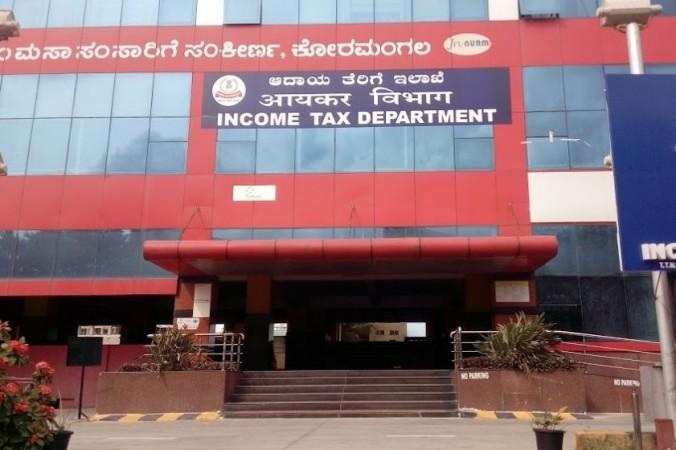
A government move to give more teeth to procedures against tax offenders is apparently making tax evaders jittery. Several categories of tax defaulters, such as those who stash black money offshore, will now face more stringent prosecution procedures. Such categories will not be able to go scotfree by paying a steep fine in the name of compounding, in lieu of prosecution.
Revised guidelines on 'compounding of offences under the direct tax laws' issued by the Central Board of Direct Taxes (CBDT) came into effect on Monday and would apply to all compounding applications received after this date, a report on The Times of India website says. The revised guidelines supersede a December 2014 circular.
"The earlier CBDT guidelines permitted compounding of offences relating to undisclosed foreign bank accounts and overseas assets if the taxpayer has cooperated and paid the taxes," the report quotes Sandeep Bhalla of Dhruva Advisors as saying. The Anti-Black Money Act of 2015 did not permit compounding, according to him. Instead, it provided a limited window for people to come clean by paying a flat 30 per cent tax and stiff penalties. "The revised guidelines have taken this forward and compounding is not permitted both for cases covered under the Anti-Black Money Act and all offences relating to undisclosed foreign bank accounts or assets."
The compounding option will be off the table for those who help others to evade tax, the report says, citing Gautam Nayak of CNK & Associates. "Compounding shall also not be available where it is proved that a taxpayer has enabled others to evade tax, such as through entities used to launder money. The bar also applies where a taxpayer generated bogus invoices of sales or purchase or provided accommodation entries. Offences under the Benami Transactions Prohibition Act, too, cannot be compounded," Nayak is quoted as saying.
![A commuter walks past the finance ministry building in New Delhi, The new guidelines issued by the Central Board of Direct Taxes (CBDT) limits the scope of commuting tax violations. [Representational Image]. cbdt, finance ministry, north block, income tax, apa, agreements on taxation, india news](https://data1.ibtimes.co.in/en/full/610451/cbdt-finance-ministry-north-block-income-tax-apa-agreements-taxation-india-news.jpg?h=450&l=50&t=40)
The new guidelines that have come out soon after Nirmala Sitharaman has taken charge as finance minister in Prime Minister Narendra Modi's second cabinet after the Bharatiya Janata Party's sweeping return to power in the Lok Sabha election will be widely applauded. The new teeth that the rules have got will help the tax sleuths crackdown on those who have stashed black money abroad. The Indian government has apparently made much progress with foreign governments, especially the Swiss authorities, in sharing details of those who have stashed black money in safe haven accounts.
"Typically, accommodation (bogus) entries are routed through shell companies, as share capital, in order to evade tax. Or to launder money, fake loans are shown in account books by a business entity," their report quoted an identified income-tax official as saying.
In the eight-month period that ended on November 2017, more than 1,000 cases of tax violations were compounded and prosecution complaints were filed in about twice as many cases. The revised guidelines could result in a spike in prosecutions, sources say.

















